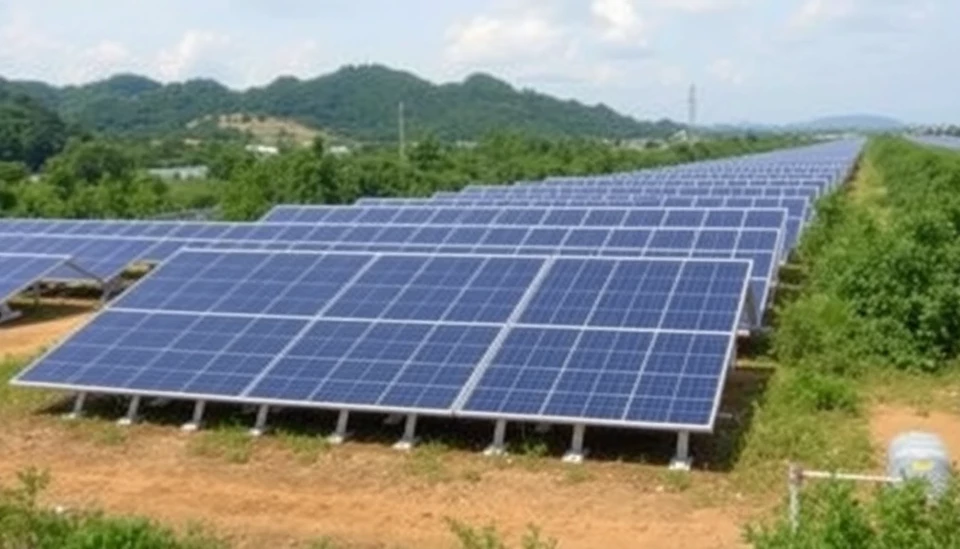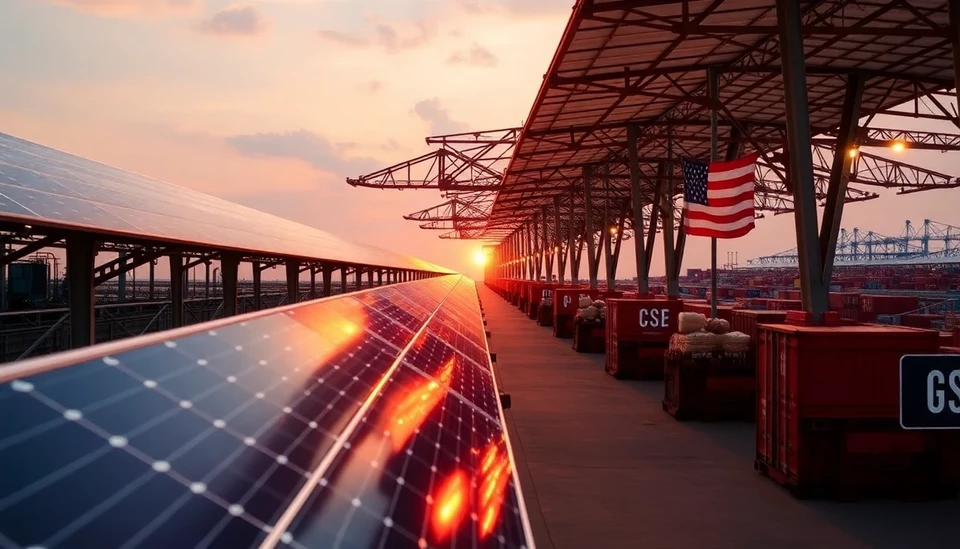
In a significant move that underscores the ongoing trade tensions, the United States has announced a new round of tariffs on solar panel imports from Southeast Asian nations. The decision, which comes as the Biden administration seeks to bolster domestic solar manufacturing, has sent ripples through the global solar market and raised concerns among industry players regarding potential impacts on pricing and supply chains.
The newly levied duties specifically target imports from countries like Malaysia, Vietnam, and Thailand, which have been pivotal in supplying solar panels to the US market. The administration's rationale centers around accusations that these nations are circumventing existing tariffs on Chinese solar products by shipping components through Southeast Asia. This strategic maneuver raises alarm bells in Washington, prompting officials to act decisively to protect American businesses and promote domestic production.
The tariffs, which are set to increase the cost of imported solar panels, are viewed as a double-edged sword. On one hand, they could provide a much-needed boost to local manufacturers who have long grappled with competition from cheaper foreign imports. On the other hand, the increased costs may be passed on to consumers, potentially slowing the growth of the renewable energy sector at a time when the US is aiming for a massive expansion in solar capacity to meet climate goals.
This move is particularly controversial as it occurs against a backdrop of existing trade disputes, coupled with the ongoing geopolitical tensions between the US and China. Industry analysts suggest that these tariffs could disrupt supply chains further, as manufacturers may struggle to adapt to the changes in import costs and sourcing strategies. Many companies have expressed concerns that the tariffs could stifle innovation and delay crucial projects aimed at transitioning to a greener economy.
The reaction from Southeast Asian governments has been immediate, with officials voicing their disappointment and concern over the potential economic fallout. They argue that the US’s tariff strategy could jeopardize jobs in their regions that are heavily reliant on the solar manufacturing sector. Moreover, there are fears that these tariffs could spark retaliatory measures from affected countries, escalating trade tensions even further.
Despite the potential backlash, US officials remain steadfast in their commitment to revitalizing domestic solar panel production. Within the Biden administration, there is a strong belief that creating a robust homegrown industry is vital for achieving long-term energy independence and fulfilling ambitious climate targets.
As the situation develops, industry stakeholders are closely monitoring the impact of these changes, with many calling for a balanced approach that supports domestic manufacturing while also considering the global nature of the solar supply chain.
Looking ahead, the unfolding repercussions of these tariffs will be watched closely by investors, manufacturers, and policymakers alike. The US's strategy in the renewable energy arena may set significant precedents for international trade relations in this rapidly evolving sector.
In conclusion, the imposition of tariffs on solar imports from Southeast Asia highlights the complex interplay between trade policies, domestic manufacturing ambitions, and the critical need for a sustainable energy future. As the US navigates these challenging waters, the hope remains that a cooperative approach can emerge in pursuit of shared climate goals.
#SolarTariffs #TradeTensions #USSEAsia #RenewableEnergy #ClimateChange #SolarIndustry #BidenAdministration
Author: Sophie Bennett
